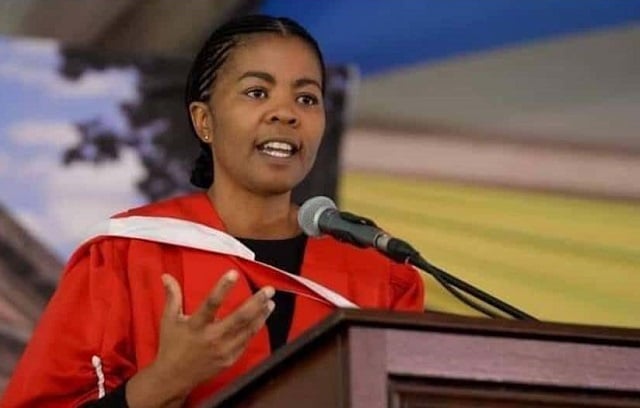Puleng LenkaBula, the vice-chancellor of the University of South Africa (UNISA), says African universities must deal with the legacies of colonialism for the development of education.
NAN reports that LenkaBula spoke at the 12th convocation lecture of the National Open University of Nigeria (NOUN) in Abuja on Friday.
The vice-chancellor said the pan-African varsities must prioritise science, technology, and innovation (STI) driven skills to facilitate the growth of the continent.
“The pan-African university must possess a progressive and relevant pedagogy that returns knowledge to the people – the real originators of knowledge,” she said.
“The people, who inspire and provoke us to think, dream and do! The university of the future must return to its past to rediscover its ontology, epistemology, and pedagogy.
“If we are to ensure that no one is left behind in this century under the vision of the Sustainable Development Goals, we must ensure that all structures of exclusion, discrimination and dehumanisation are addressed.
“The nationally oppressed people across the world are totally demolished even in the knowledge generation and dissemination processes and must be inspired by the past as much as it is by the idea of futures.”
The VC further said varsities across the continent must ensure curriculum transformation as well as the development of infrastructure, partnerships, and sustainable funding.
“The pan-African university must reimagine questions about who we teach, what we teach, where we teach, how we teach, why we teach, when we teach, will continue change,” she added.
“For example, there are massive convergences and divergences in the services industry which are influenced by knowledge, experiences and pedagogies across countries, regions, cultures, and histories.
“The pan-African university must define its role in questioning and advancing pan-African unity in the region and the Diaspora.
“The African universities must deal with legacies of colonialism, racism, apartheid, and cultural imperialism, from curriculum transformation to development of infrastructure, partnerships, and sustainable funding.”
Copyright 2024 TheCable. All rights reserved. This material, and other digital content on this website, may not be reproduced, published, broadcast, rewritten or redistributed in whole or in part without prior express written permission from TheCable.
Follow us on twitter @Thecablestyle

